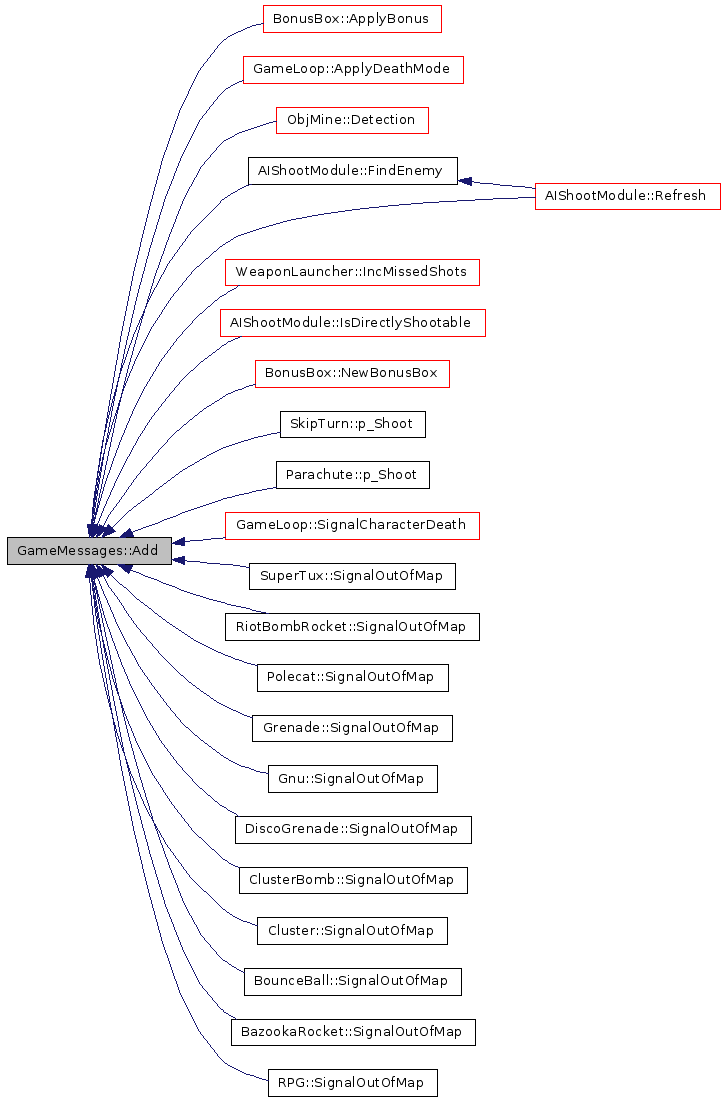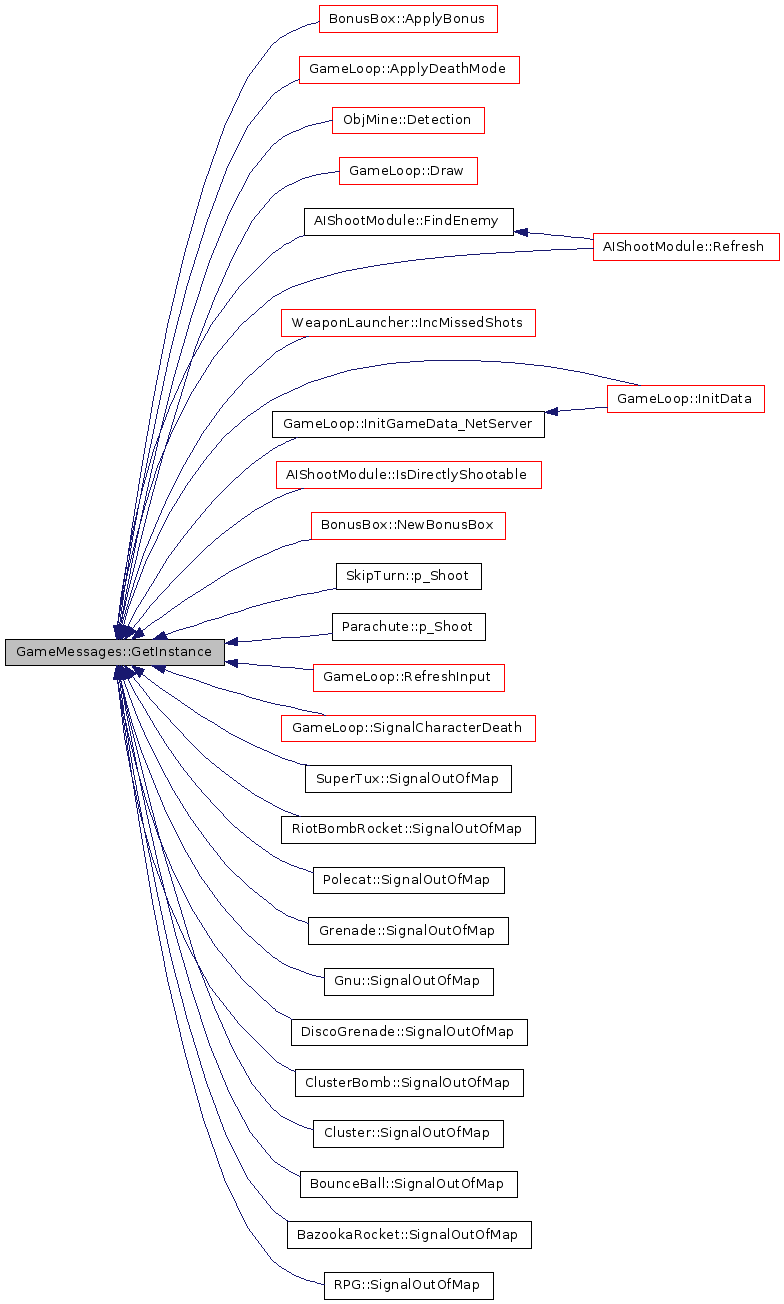
#include <game_msg.h>
Collaboration diagram for GameMessages:

Public Member Functions | |
| void | Reset () |
| void | Draw () |
| void | Refresh () |
| void | Add (const std::string &message) |
Static Public Member Functions | |
| static GameMessages * | GetInstance () |
Private Types | |
| typedef std::list< Message * >::iterator | iterator |
Private Member Functions | |
| GameMessages () | |
Private Attributes | |
| std::list< Message * > | liste |
Static Private Attributes | |
| static GameMessages * | singleton = NULL |
Definition at line 57 of file game_msg.h.
typedef std::list<Message *>::iterator GameMessages::iterator [private] |
Definition at line 76 of file game_msg.h.
| GameMessages::GameMessages | ( | ) | [private] |
| void GameMessages::Add | ( | const std::string & | message | ) |
Definition at line 91 of file game_msg.cpp.
00091 { 00092 // Debug message 00093 std::cout << "o MSG: " << message << std::endl; 00094 // Add message at the end of the list 00095 Message * newMessage = new Message(message, white_color, Font::GetInstance(Font::FONT_SMALL), Time::GetInstance()->Read()); 00096 liste.push_back (newMessage); 00097 00098 /* if there are too many messages, remove some of them */ 00099 while( NBR_MSG_MAX < liste.size()) { 00100 Message * msg = liste.front(); 00101 assert(msg); /* the message must be valid if nothing went wrong */ 00102 liste.pop_front(); 00103 delete msg; 00104 } 00105 }
Here is the call graph for this function:

Here is the caller graph for this function:

| void GameMessages::Draw | ( | ) |
Definition at line 65 of file game_msg.cpp.
00065 { 00066 // Display messages 00067 uint msgy = 50; 00068 00069 for( iterator i=liste.begin(); i != liste.end(); ++i ){ 00070 (*i)->DrawCenterTop(AppWormux::GetInstance()->video.window.GetWidth()/2, msgy); 00071 msgy += HAUT_POLICE_MINI + INTERLIGNE_MINI; 00072 } 00073 }
Here is the call graph for this function:

Here is the caller graph for this function:

| GameMessages * GameMessages::GetInstance | ( | ) | [static] |
Definition at line 43 of file game_msg.cpp.
00043 { 00044 if (singleton == NULL) { 00045 singleton = new GameMessages(); 00046 } 00047 return singleton; 00048 }
Here is the call graph for this function:

Here is the caller graph for this function:

| void GameMessages::Refresh | ( | ) |
Definition at line 76 of file game_msg.cpp.
00076 { 00077 iterator i; 00078 for( i=liste.begin(); i != liste.end(); ){ 00079 Message * msg = *i; 00080 if( MSG_LIFESPAN < Time::GetInstance()->Read() - msg->get_time() ){ 00081 delete (msg); 00082 /* erase method return the next element */ 00083 i = liste.erase (i); 00084 } 00085 else /* nothing was removed, take next */ 00086 i++; 00087 } 00088 }
Here is the call graph for this function:

Here is the caller graph for this function:

| void GameMessages::Reset | ( | ) |
Definition at line 54 of file game_msg.cpp.
00054 { 00055 iterator i; 00056 for( i=liste.begin(); i != liste.end(); i++){ 00057 Message * msg = *i; 00058 assert(msg); /* the message must be valid if nothing went wrong */ 00059 delete (msg); 00060 msg = NULL; 00061 } 00062 liste.clear(); 00063 }
Here is the caller graph for this function:

std::list<Message *> GameMessages::liste [private] |
Definition at line 75 of file game_msg.h.
GameMessages * GameMessages::singleton = NULL [static, private] |
Definition at line 77 of file game_msg.h.
 1.4.7
1.4.7